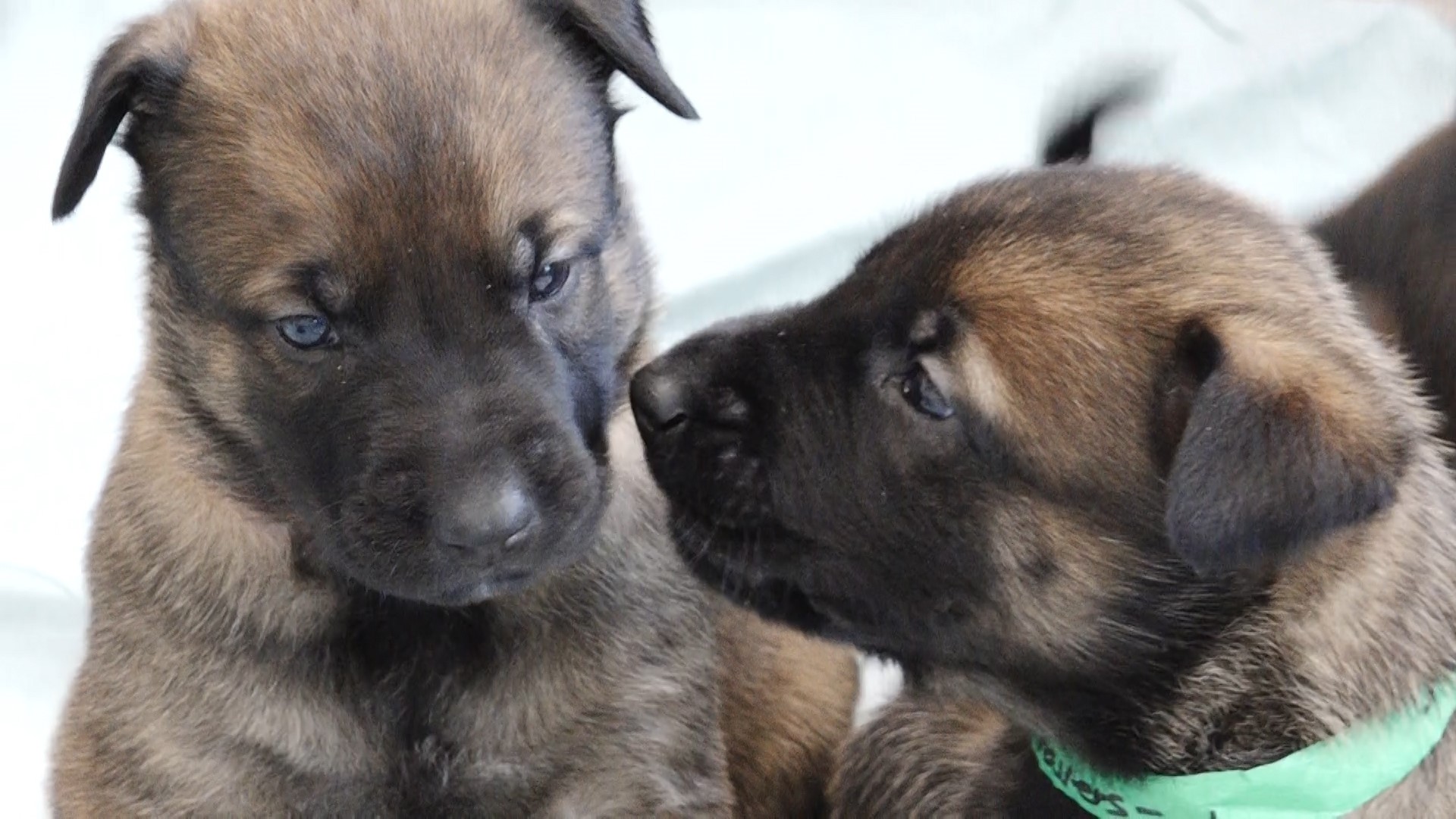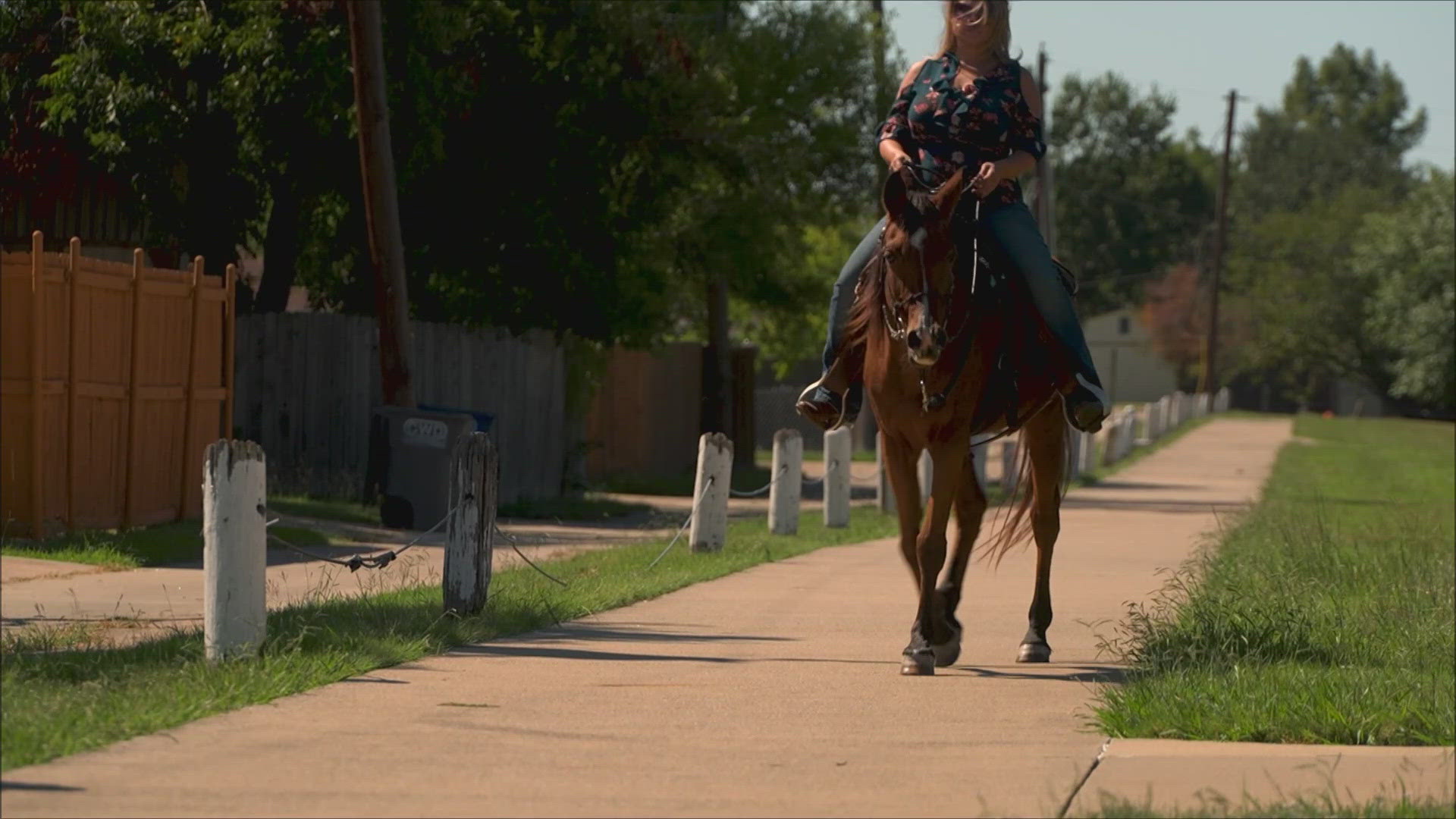SAN ANTONIO -- Military working dogs responsible for saving the lives of our military members are bred and trained in San Antonio.
The biggest challenge for the breeding program is finding enough foster families to socialize the puppies before their official training begins.
KENS 5 stopped by JBSA-Lackland to learn more on has more on how you can help raise the Belgian Malinois puppies that go on to serve our country.
"These guys are like regular dogs on about 11 Red Bulls," said Tracy Cann, a foster consultant at JBSA-Lackland.
100 dogs born in the 341st Training Squadron Military Working Dog Breeding Program each year are destined for a life of service.
"I don't have kids so sending these puppies off to what I call 'Puppy boot camp,' is very rewarding for me because it's like 'Oh, my baby's gonna go off and do great things!'" said Marie Takeshita, a foster parent and animal caretaker at JBSA-Lackland.
Between the ages of six weeks and seven months, the puppies live with foster families in the San Antonio area.
"It is a cost-effective way for us to raise puppies because the puppies require tremendous amounts of individual attention. The other reason we do it is it's the best place for the puppy to grow up," said Dr. Stewart Hilliard, who manages the 341st squadron Military Working Dog Breeding Program.
"The trainers teach them to do the job," said Cann. "But the fosters teach them how to be comfortable in the world so they can do that job."
Not everyone can take these puppies home. You must apply and then be selected.
"They come back every month for evaluations, veterinary care, vaccines, and we provide crates, equipment," said Cann. "And emotional therapy if your puppy is a bit too much."
Don't let their cute faces fool you. This job takes hard work. Foster parents we spoke with say this takes a lot of time, and it could cost you a coffee table or two.
"It's a roller coaster ride. It's happiness. It's sadness. It's laughs. It's upsetness. Like, 'Why did you do that? What did you just eat? Take that out of your mouth!'" said Stephanie Rymers, an Aircraft Mechanic at JBSA-Lackland.
"Some are shy at first and it takes a week to come out of their shell. Other ones, as soon as they come home, they're like 'What can I eat?' and I'm like, 'No! You're not supposed to eat that!'" added Edgar Ramirez, an Avionics Technician at JBSA-Lackland.
For these Belgian Malinois puppies, what they need the most is your attention.
"They go every place with us. They go to stores, they go to restaurants. They're with us all the time," said Lora Harrst, who has fostered puppies from the breeding program for years.
"They're very possessive. They must want to possess that ball to have the drive to search for that bomb for however long they need to search for it," said Cann. "They think they're finding their ball, so they want to find that ball. But that's also the same thing that makes a puppy eat a wood screw for no good reason, unfortunately."
Cann says the foster families are a tight-knit crew. They have a Facebook page where everyone talks about their puppies, and they even put on the occasional contest to see the craziest things their foster dogs ate.
What keeps so many foster families coming back? To them, the answer is simple.
"Your sons, daughters, husbands, wives, these dogs could go out there and bring them back home to you safely," said Harrst.
The benefits of these military dogs aren't limited to their time in combat. Ramirez says when he was deployed, his morale changed drastically when in the presence of a military dog.
"When you hear a story that your dog found an IED and saved a bunch of people. It's just indescribable," said Amber Berish, an Air Force Staff Sgt. in Health Administration at JBSA-Lackland.
Not all dogs in the breeding program go on to be military working dogs. About half would rather stay with families as a pet.
If you're interested in fostering one of these future protectors of our military members, you can call 210-671-3686 or e-mail MWD.FOSTER@us.af.mil.


